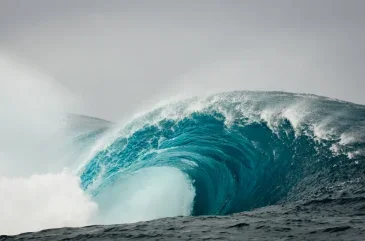
The US Department of Energy’s Water Power Technologies Office (WPTO) has announced nearly $2 million in funding for two university-led projects focused on developing wave-powered technologies for desalination of seawater.
“These projects will advance systems to produce drought-resistant drinking water for coastal communities and in disaster-relief situations,” said WPTO Director Matthew Grosso. “The United States holds tremendous wave energy resources that can be harnessed to produce clean drinking water and support coastal energy needs as well as power offshore work and electricity grids.”
The two projects aim to enhance the efficiency and cost-effectiveness of wave-powered desalination systems:
- Purdue University in West Lafayette, Indiana, will develop a system that uses hydraulics – relying on the movement and pressure of water instead of electricity – to filter and produce clean drinking water. The project will focus on maximizing efficiency and minimizing maintenance costs. The awarded funding is $999,523.
- University of Minnesota in Minneapolis will advance a dual-purpose power take-off system that generates electricity and hydraulic pressure from wave energy. This system can function independently, ensuring minimal disruptions, and is designed to support large-scale desalination plants. Collaborators include the University of Michigan and Novus Technical Services. The awarded funding is $997,798.
The projects were selected under the WPTO’s Marine Energy Systems Innovation at Sea program. These awards follow an earlier selection of seven projects in 2023, enabled by additional funding availability.
Wave energy resources in the US are estimated to equal 34% of the nation’s electricity generation. Harnessing even a portion of this potential could make significant contributions to clean energy and water production.
For more information on these projects and other funding opportunities, visit the WPTO website.






